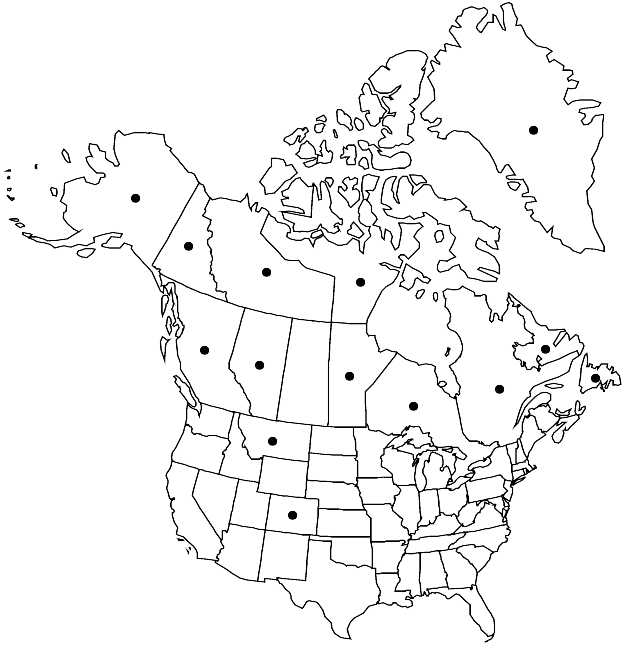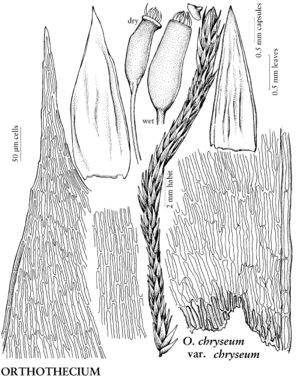Orthothecium chryseum
in P. Bruch and W. P. Schimper, Bryol. Europ. 5: 107. 1851.
Plants large, in tufts, golden. Stems 5–10 cm, 3 mm wide, erect or ascending, simple or sparingly branched. Leaves imbricate, ovate-lanceolate to ovate-triangular, strongly plicate, 1–5 mm; base slightly decurrent; margins partially recurved, entire; apex short-acuminate; ecostate or costa double, very short; basal laminal cells shorter, broader than medial cells, golden brown; medial cells linear, 84 × 6 µm. Specialized asexual reproduction absent. Seta golden brown. Capsule frequently slightly asymmetric, 1.5–1.8 mm. Spores 14–16 µm.
Distribution

North America, n, c Europe, Asia (Russian Arctic), Atlantic Islands (Iceland).
Discussion
Varieties 5 (2 in the flora).
Orthothecium chryseum has ovate-triangular perichaetial leaves. The sporophytes are infrequent; the capsules are ovoid-cylindric and contracted below the mouth when dry and empty.
Selected References
None.
Key
| 1 | Leaves concave. | Orthothecium chryseum var. chryseum |
| 1 | Leaves cochleariform. | Orthothecium chryseum var. cochleariifolium |
